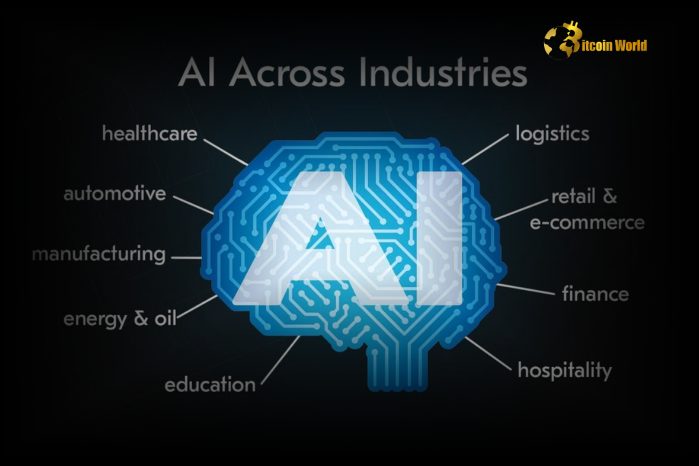Industry-Specific AI: Transforming Education, Agriculture, and Engineering
Artificial Intelligence (AI) is redefining industries by introducing tailored solutions to address unique challenges. From personalized learning in education to precision farming in agriculture and advanced design tools in engineering, AI in education, AI in agriculture, and AI engineering are revolutionizing traditional processes. This guide explores how AI is reshaping these key industries.
AI in Education
AI in education is transforming how students learn and teachers teach by introducing intelligent tools and personalized solutions.
Applications of AI in Education
- Personalized Learning:
- Tools like Socratic by Google and Khan Academy AI adapt lessons to individual learning styles and paces.
- AI-powered platforms identify areas where students struggle and provide targeted support.
- Automated Grading:
- Systems like Turnitin and Gradescope automate the grading process, saving teachers valuable time.
- AI evaluates not just multiple-choice answers but also written essays for structure and coherence.
- Virtual Tutors and Chatbots:
- AI tutors like ChatGPT answer questions and clarify concepts, offering 24/7 learning support.
- Chatbots assist with administrative queries, improving communication between students and institutions.
- Content Creation and Summarization:
- Tools like Quizlet AI generate quizzes, while summarizers like Genei create study materials from lengthy texts.
Benefits of AI in Education
- Enhances learning outcomes with personalized approaches.
- Frees educators from repetitive tasks to focus on teaching.
- Increases access to quality education globally.
AI in Agriculture
AI in agriculture is boosting productivity, reducing waste, and making farming more sustainable through advanced analytics and automation.
Applications of AI in Agriculture
- Precision Farming:
- AI tools like John Deere’s See & Spray analyze soil conditions and monitor crop health.
- Sensors and AI-powered drones optimize irrigation, fertilization, and pesticide use.
- Yield Prediction and Crop Monitoring:
- Platforms like Cropin AI use machine learning to predict yields and identify potential risks.
- AI processes satellite imagery to detect diseases or nutrient deficiencies.
- Livestock Management:
- AI systems like Cainthus monitor livestock behavior and health, ensuring timely interventions.
- Supply Chain Optimization:
- AI predicts demand and optimizes harvest schedules to reduce waste and meet market needs.
Benefits of AI in Agriculture
- Reduces resource use, including water and fertilizers.
- Minimizes crop losses with early detection of issues.
- Enhances sustainability with data-driven farming.
AI in Engineering
AI engineering integrates machine learning and data analysis into engineering processes, driving innovation and improving designs.
Applications of AI in Engineering
- Design Optimization:
- AI tools like Autodesk Fusion 360 enhance product designs by simulating real-world conditions.
- Generative design algorithms create efficient and innovative prototypes.
- Predictive Maintenance:
- Systems like IBM Maximo monitor machinery performance, predicting failures before they occur.
- AI ensures uninterrupted operations and reduces repair costs.
- Construction Automation:
- AI robotics automate tasks like bricklaying and 3D printing structures.
- Machine learning models analyze construction project timelines to prevent delays.
- Smart Infrastructure:
- AI integrates with IoT to monitor and manage smart cities, from traffic control to energy optimization.
Benefits of AI in Engineering
- Reduces costs through optimized designs and maintenance.
- Improves project timelines with efficient resource management.
- Enhances innovation with advanced computational tools.
How AI is Driving Change Across Industries
- Efficiency: Automates repetitive tasks, freeing resources for higher-value activities.
- Data-Driven Decisions: Uses analytics for better planning and problem-solving.
- Sustainability: Promotes eco-friendly practices by optimizing resources.
- Global Impact: Makes solutions accessible worldwide, benefiting diverse populations.
FAQs About Industry-Specific AI
1. How is AI used in education?
AI personalizes learning, automates grading, and provides virtual tutoring, improving accessibility and outcomes.
2. What are examples of AI in agriculture?
AI powers precision farming, crop monitoring, and supply chain optimization, enhancing productivity and sustainability.
3. Can AI be applied in engineering?
Yes, AI is used for design optimization, predictive maintenance, and smart infrastructure management.
4. Are AI tools expensive?
While some advanced tools require investment, many AI applications offer scalable solutions suitable for various budgets.
5. How do industries benefit from AI adoption?
AI drives efficiency, innovation, and sustainability while reducing costs and improving outcomes.
Conclusion
AI is revolutionizing education, agriculture, and engineering by offering tools and solutions that enhance productivity and innovation. From smarter learning systems to sustainable farming practices and advanced engineering designs, industry-specific AI applications are transforming the way we work and live.
Explore AI tools in your industry today to unlock new possibilities and achieve greater efficiency.
For more insights, check out our guide on AI Applications Across Key Industries.
Disclaimer: The information provided is not trading advice, Bitcoinworld.co.in holds no liability for any investments made based on the information provided on this page. We strongly recommend independent research and/or consultation with a qualified professional before making any investment decisions.



